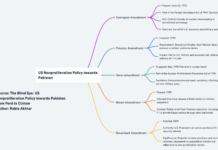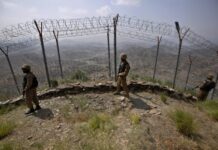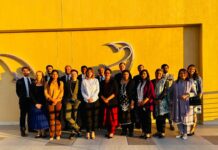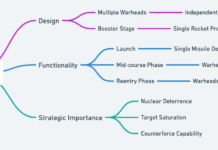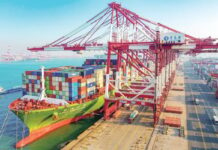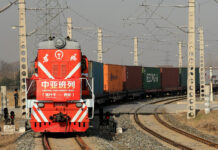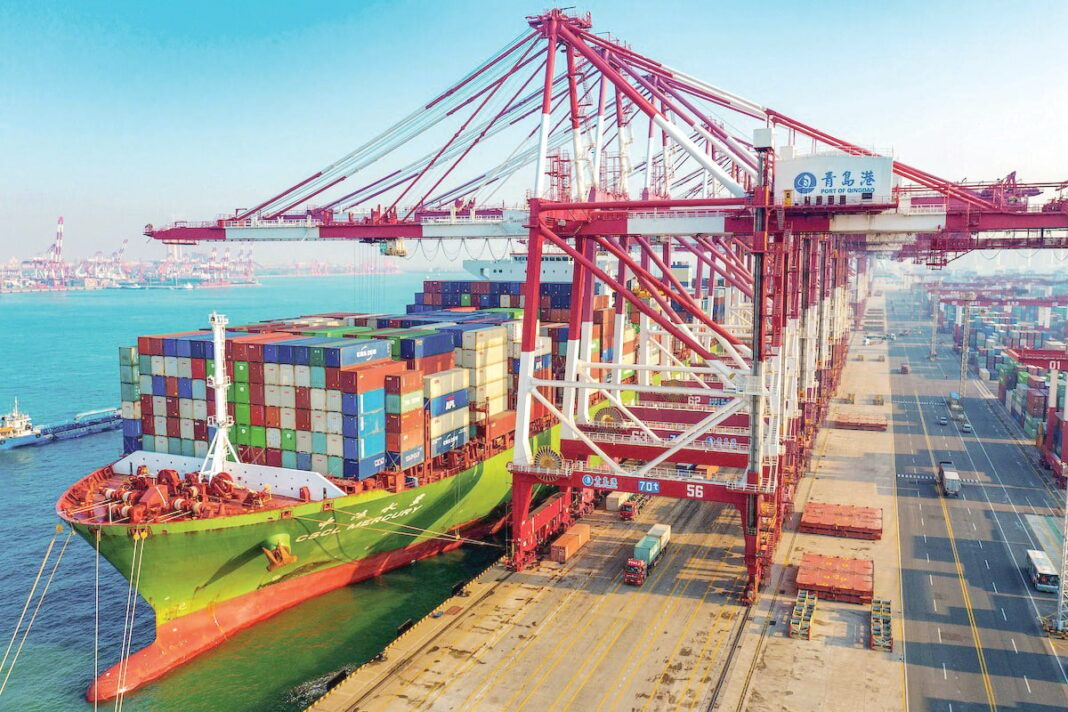Afeera Firdous
In January 2022, Pakistan’s National Security Division (NSD) launched the country’s first-ever National Security Policy (NSP), marking a significant milestone. The said document highlights the importance of economic security under the overarching framework of comprehensive national security. Notably, the NSP recognizes the importance of building a robust economic foundation for Pakistan. With economic security being its central pillar, the Policy advocates for a geoeconomic paradigm for Pakistan. While the NSP does not crystallize the concept of geoeconomics, a recent report explains it in the context of Pakistan. According to the said report, regional connectivity is one of the pillars of Pakistan’s geoeconomic framework.
Being at the crossroads of emerging international business hubs and markets, Pakistan carried the vision of geoeconomics from China’s Belt and Road Initiative (BRI). In April 2015, Pakistan and China launched the China-Pakistan Economic Corridor (CPEC) to strengthen bilateral trade and regional connectivity. Originally estimated to be a $46 billion-dollar investment project , CPEC reached up to $65 billion. CPEC, at the outset, focuses on upgrading the infrastructure through transportation networks, energy projects, and Special Economic Zones (SEZs). Apart from CPEC, there are few other ingenious regional connectivity projects, such as the Turkmenistan-Afghanistan-Pakistan-India Pipeline (TAPI), Central Asia South Asia (CASA)-1000 project, and the Iran-Pakistan Gas Pipeline (originally Iran-Pakistan-India Pipeline). Despite their enormous potential, these projects have not yet become success stories of regional connectivity.
However, the idea of bolstering regional connectivity is not a new one. In 2014, the Ministry of Planning, Development and Reforms launched Vision 2025. The Vision dubbed regional connectivity an engine of growth for the country. Therefore, strengthening regional connectivity is an intrinsic part of Pakistan’s bid to become a major geoeconomic actor. But, doing so is not an easy task. Hence, it is important to look at some of the challenges Pakistan could face in doing that.
A major challenge that Pakistan will have to navigate is that of striking a balance between geopolitics and geoeconomics. T.V. Paul, in his book titled “The Warrior State: Pakistan in the Contemporary World”, rightly states that Pakistan’s geostrategic location has been “a blessing and a curse,” making it of interest to great powers for decades. Since Pakistan’s independence, geography and international politics have determined the course of national decision-making on issues, such as foreign policy and security. Therefore, regional geopolitics will affect Pakistan’s geoeconomic choices.
The second challenge lies in navigating security threats. According to a Congressional Research Service report, Pakistan saw a sharp rise (60%) in terrorist attacks since August 2021. In 2023, two border provinces, Khyber Pukhtunkhwa and Balochistan, witnessed almost 93% of the total attacks in the country. An uptick in terrorism not only threatens internal security but also undermines relations with neighbors, such as Afghanistan and Iran. Recently, Iran carried out a missile attack inside Balochistan. To restore deterrence, the Pakistan Air Force hit back inside Iran’s Sistan -Baluchistan with a strike against a Baloch insurgent group. The whole episode was an anomaly in Pak-Iran relations. The two countries will stand to lose economically if their relations deteriorate. Similarly, military tensions between Pakistan and Afghanistan will hurt efforts to establish an economic footprint in Central Asia.
A worsening economic crisis is another major factor which is likely to impede regional connectivity. By the end of 2023, Inflation rose to 29.18%, as compared to 8.9% in 2021, marking its highest rate in the past 4 decades. According to the International Monetary Fund (IMF) data, the unemployment rate in 2023 increased up to 8%, as compared to 6.5% in 2021. Consequently, the country’s gross domestic product (GDP) declined to $340.64 billion in 2023 as compared to the two preceding years. Apart from these indicators, Pakistan did not provide a conducive environment to encourage foreign investment to fuel economic growth. The Pakistani government has been unable to address crucial economic challenges, including issues with business lobbies, trade barriers, competitiveness, and infrastructure. These obstacles could limit Pakistan’s ability to capitalize on potential gains.
Finally, political instability presents a significant challenge, eroding trust among regional countries and partners. Over the past few decades, successive governments have prioritized political point-scoring over implementing essential structural reforms across various sectors. The ongoing political crisis in the wake of Imran Khan’s ouster in 2022 and controversies regarding the general election will have far-reaching implications not only for regional and international partnerships but also for public trust at home. As T.V. Paul argues, the strategic location of a country has the potential to generate benefits for the ruling class, which discourages attempts to reform the system. Therefore, the real challenge will be to build elite consensus on the need to undertake a series of key reforms.
A Way Forward
These challenges notwithstanding, it is fair to say the efficacy of a national policy cannot be fully judged in three years. That being said, it is important to focus on ways to realize Pakistan’s geoeconomic vision. One of the keys to making this geoeconomic gambit a success is to stabilize relations with Iran and Afghanistan. This is primarily because healthy ties with these two neighbors will go a long way in helping Pakistan become a pivot for trade between Central Asia, the Middle East, and Southeast Asia. Moreover, an attitudinal change among stakeholders is of great import as it will help resolve all the challenges discussed above. Most importantly, it will convey to the world that Pakistan is seriously committed to removing bottlenecks that have hindered its growth.
Afeera Firdous is an independent security analyst.
The views expressed in the article are the author’s own and do not necessarily reflect those of Pakistan Politico.



